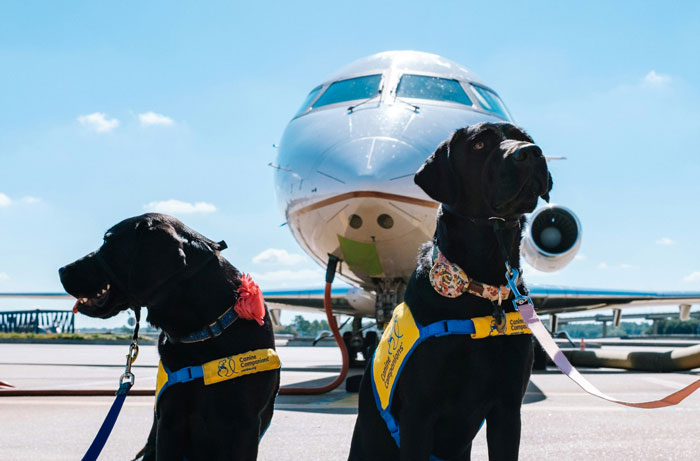“Is Your Dog Evolving? Scientists Reveal Shocking New Phase in Canine Development Driven by Human Life!”
Have you ever looked into those big, soulful eyes of your dog and wondered what they’re really thinking? Well, it’s not just wishful thinking—scientists are suggesting your furry friend might actually be evolving! As we humans increasingly embrace the need for friendlier, calmer companions, these canine pals seem to be hitching a ride on the emotional expressway, adapting to a more affectionate role in our lives. Gone are the days when dogs were primarily working animals, like rugged hunters or trusty herders; these days, they’re more likely to curl up on the couch next to us than chase after a sheep. Join us as we dive into research that explores how our beloved dogs are changing—and what that says about our relationship with them as we navigate our modern, urban lives. Ready to find out just how deep this doggy evolution goes? LEARN MORE.
Scientists have discovered that dogs may be entering a new wave of domestication, as humans now seek to have companions that are friendlier and calmer.
A few decades ago, dogs were seen as animals that could hunt, herd livestock, and offer protection.
Nowadays, these canines may be morphing to fit into the largely sedentary, modern lifestyle of a human, evolving into animals more appropriate for an urban environment.
- Dogs are evolving to be friendlier and calmer as humans seek more affectionate companions.
- Oxytocin, the ‘love’ hormone, enhances social skills, affecting dogs’ relationships with humans.
- Service dogs demonstrate dogs’ adaptation to modern life, contrasting with their hunting origins.
Dogs may be entering a new wave of evolution as humans’ need for companionship grows
Image credits: Jamie Street / Unsplash
A study concluded that oxytocin is the “love” hormone that drives dogs to seek contact and interaction with their owners. And as humans grow more fond of affectionate pets, canines are becoming more sensitive to this hormone.













